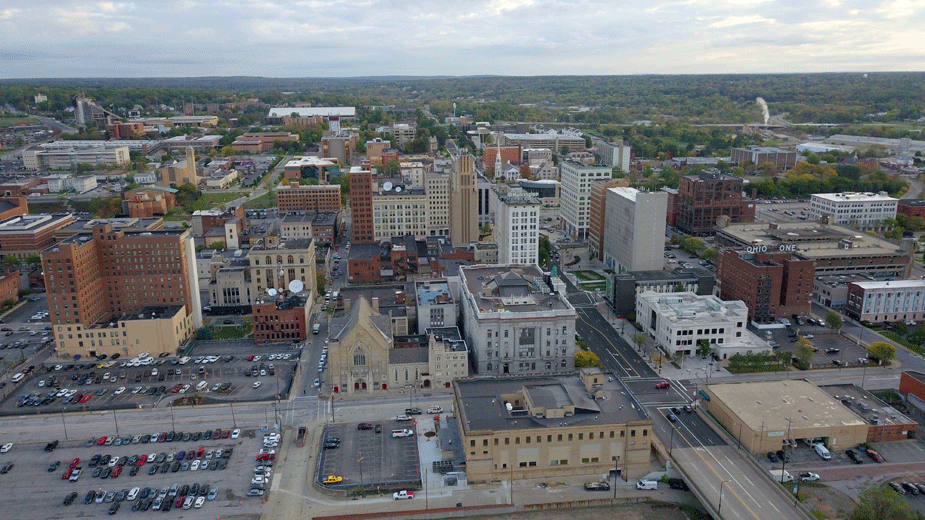City Considers Furloughs to Manage Tax Shortfall
YOUNGSTOWN, Ohio – Anticipating a minimum 15% drop in income tax collections and declines in other revenue sources, Mayor Jamael Tito Brown is offering a voluntary furlough to nonessential employees as the city navigates the impact of the coronavirus pandemic.
In a memo to city staff and media outlets, Brown acknowledged the pandemic has caused shortfalls for municipal governments nationwide.
“We recognize that we will feel the aftermath of this virus in our country and in our community for years to come,” Brown said.
The city had budgeted gross income tax collections of approximately $46 million for the fiscal year, according to deputy finance director Kyle Miasek. Under the city charter, withholding gets remitted the month after the tax has been withheld, so Youngstown has collections for a third of its income tax year, December 2019 and the first three months of 2020, a time frame that includes March, when state-mandated business shutdowns and stay-at-home orders began.
So far, collections are only off about $100,000 from projections, Miasek said. April’s collections, which the city won’t receive until May, will provide the first indication of the outbreak’s impact.
“Once I start to look at April’s totals, I’m going to see the impact of the shutdowns or furloughing, and how that’s going to ultimately impact the remainder of the forecast year,” he said. “The length of this is going to then dictate how much I’m going to have to lower my forecast. That is going to be the biggest unknown.”
While Youngstown doesn’t have the restaurant and retail presence that surrounding communities have, many city residents work at those places, Brown acknowledged, which will affect income tax collected. The city also has manufacturing operations that have closed because of the outbreak.
In addition to the projected drop in income tax collections, the city is expecting less collected from the Ohio casino tax, which generates about $1 million a year in revenue, and the state gas tax, which the Ohio Department of Transportation predicts will distribute $86 million less to local governments because of COVID-19, the disease spread by the coronavirus.
Another revenue source for the city, its enterprise funds, will be “deeply impacted” because Gov. Mike DeWine placed a moratorium on water
service disconnections, the mayor pointed out.
“It was fair, but will have a long-term budget impact,” Brown said.
Because of the anticipated shortfall, the city is developing a furlough process to stabilize its finances similar to what is being done in other cities nationwide, the mayor said.
A survey by the National League of Cities and U.S. Conference of Mayors showed that 98% of municipalities with populations between 50,000 and 199,999 – Youngstown’s population is estimated at 65,000 – anticipate a revenue shortfall this year. Of municipalities in that population range, 63% expect to cut services and 55% will have to furlough employees.
Ohio is unique because its cities are funded through income taxes and sales taxes, Brown said, a practice uncommon in other states.
“We have engaged all union and nonunion employees in discussions regarding the economic impact this pandemic has had on our nation, state, and local economy,” Brown said. “We value every employee and stress they have done nothing wrong. We still cannot fully anticipate what effect this global pandemic will have on our lifestyle going forward.”
The voluntary furlough is being offered to employees the city has designated nonessential. The current furlough plan excludes sworn police officers, firefighters, 911 personnel and sanitation workers.
“Our plan is derived from examples of what other local cities are doing to help with the loss of revenue,” Brown said. “Toledo, Akron, Cincinnati and Dayton, just to name a few cities in Ohio, have made dramatic changes to the employment landscape of those communities.”
The furlough plan will be reviewed every 30 days and will be amended based on updates and orders provided by the governor, he said.
Copyright 2024 The Business Journal, Youngstown, Ohio.



